
Hello everyone, it's Dr. Justin Marchegiani here! In today's video, I will talk about how to get adequate amounts of vitamin D. I've done a previous video on some of the lesser-known benefits of vitamin D outside of the conventional ones, so if you're interested in that, be sure to check it out. But today, we'll focus on how to ensure you're getting enough vitamin D.
First, let's clarify that vitamin D is actually a hormone, not just a vitamin. The process begins when UVB radiation from the sun hits our skin, converting cholesterol in the skin into vitamin D3. This D3 then travels to the liver, where it's converted into 25-hydroxy D, which is typically measured in lab tests. This form of vitamin D is crucial as it binds to receptor sites all over the body.
Traditionally, vitamin D was known for its role in calcium and phosphorus regulation, preventing diseases like rickets. However, recent research has uncovered its extensive benefits, including immune function, weight loss, and hormone regulation. It plays a role in over 800 different genes and has profound effects on health conditions such as autoimmune diseases, heart disease, diabetes, and more.
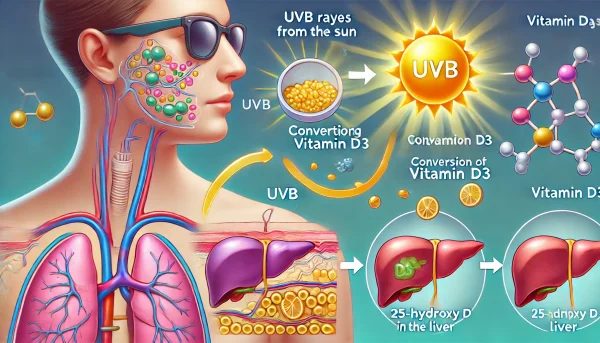
As mentioned, the body makes vitamin D when the skin is exposed to sunlight. The UVB radiation converts pre-cholesterol in the skin into vitamin D3. This D3 is then processed by the liver into 25-hydroxy D, the storage form of vitamin D, which is the best marker for vitamin D levels in the body. The kidneys further convert it into 1,25-dihydroxy D, the active form, though measuring the storage form gives a better indication of overall vitamin D status.
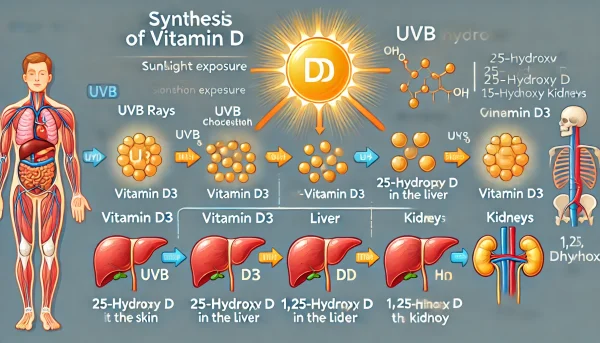
Vitamin D receptors are found throughout the body, particularly in the sex organs. It can stimulate the production of sex hormones, impacting mood, muscle growth, and neurotransmitter function. For example, vitamin D can enhance the uptake of dopamine, GABA, and serotonin, improving mood and relaxation. Additionally, it aids in weight loss by enhancing insulin sensitivity and reducing inflammation.
Vitamin D is also crucial for managing autoimmune conditions. It helps regulate the immune system and reduce the inflammation that underlies many chronic diseases. High levels of vitamin D can support the body's ability to fight infections and manage autoimmune responses effectively.
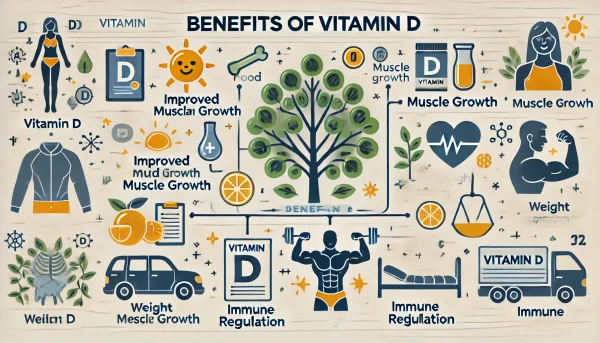
When testing for vitamin D levels, the 25-hydroxy D test is the standard. Older lab ranges aimed to prevent rickets, with levels around 20 ng/mL considered sufficient. However, newer research suggests that optimal levels are much higher. The Vitamin D Council recommends levels between 30 and 100 ng/mL, with 50-60 ng/mL being ideal for most people. For those with autoimmune conditions, levels closer to 100 ng/mL may be beneficial.
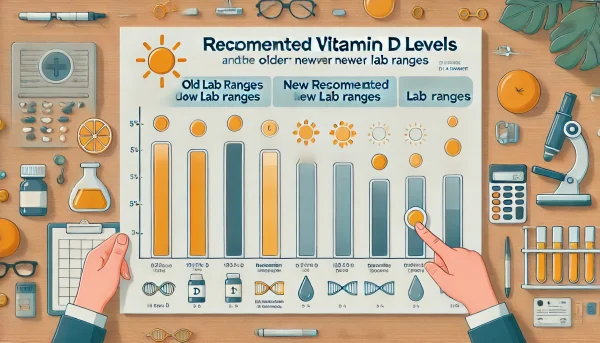
Sunlight is the best source of vitamin D, but it isn't always practical or possible due to location, lifestyle, and skin exposure. For those who can't get enough sun, supplementation is essential. Vitamin D3 is more effective than D2 and is best absorbed when paired with vitamin K and other fat-soluble vitamins. Grass-fed butter, meat, and other nutrient-rich foods can help provide these vitamins.
For supplementation, I recommend vitamin D
3 with K2. Liquid forms of vitamin D3 are often preferred because they are easier to absorb, especially if they are suspended in MCT oil. If you have low vitamin D levels, starting with 20,000 IU per day for a month, then reducing to 10,000 IU, and eventually to 5,000 IU can help restore optimal levels.
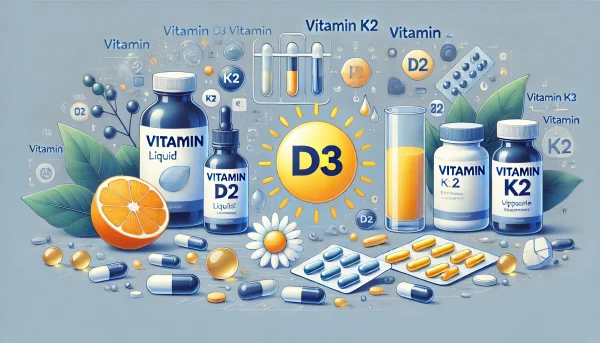
To make the most of sun exposure, aim for times between 10 a.m. and 2 p.m. when UVB rays are most effective. Expose as much skin as possible for the best results. Avoid showering immediately after sun exposure to allow the vitamin D to be fully absorbed into the bloodstream.
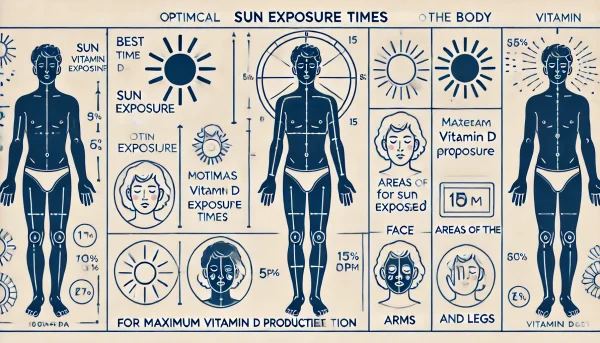
Vitamin D is particularly crucial for those with autoimmune conditions. It can help regulate the immune system and reduce inflammation, which are key factors in managing diseases like Hashimoto's thyroiditis, type 1 diabetes, multiple sclerosis, and more. If you have an autoimmune condition, aim for higher vitamin D levels and monitor your progress with regular testing.
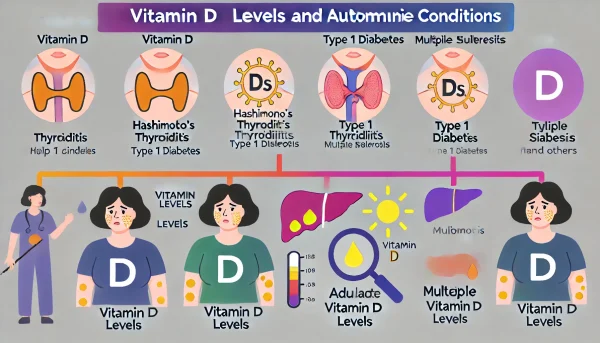
Getting adequate vitamin D is essential for overall health and well-being. Whether through sunlight or supplementation, maintaining optimal levels can help prevent a wide range of health issues. If you're unsure about your vitamin D levels or need help managing an autoimmune condition, I recommend scheduling a free consultation with me. Visit www.justinhealth.com/free-consult to set up your appointment.
====================
Vitamin D, 25-Hydroxyvitamin D (D2, D3), LC/MS/MS (QuestAssureD™)